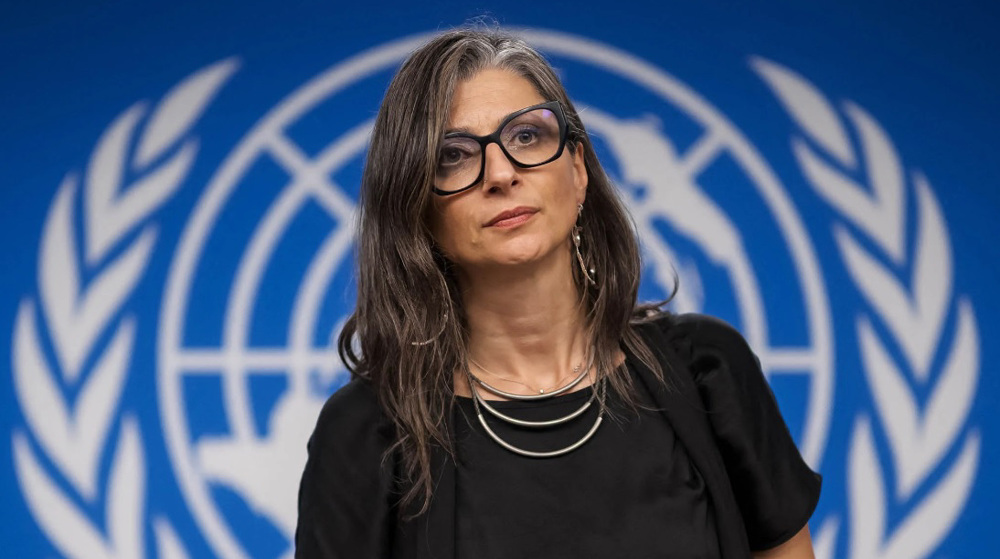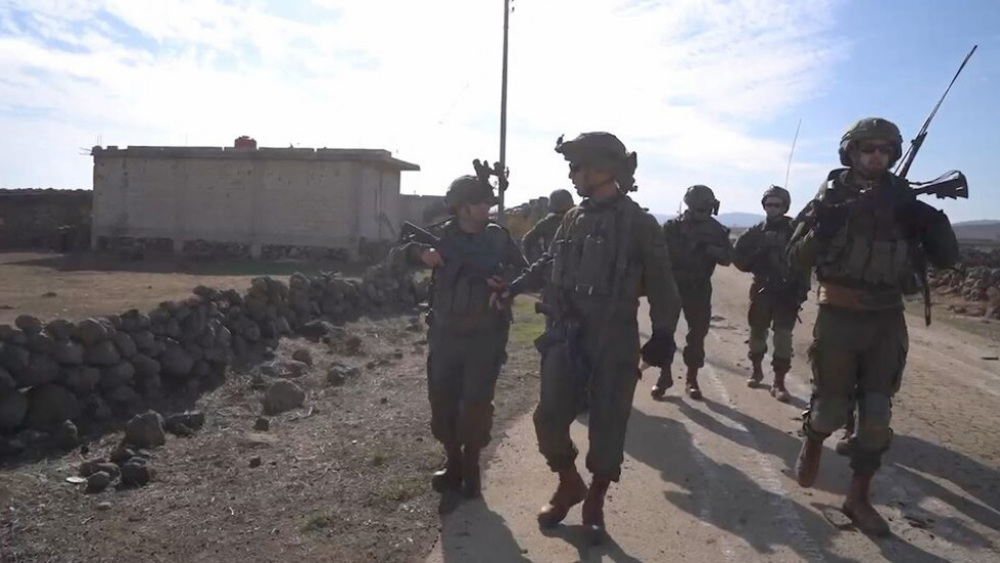UNSC passes resolution to end Israeli settlements
The United Nations Security Council (UNSC) has passed a resolution censuring Israel for its settlement activities in the occupied Palestinian territories after the US refused to veto it, reversing its longstanding policy of shielding the Israeli regime from condemnatory resolutions at the world body.
The Egyptian-drafted resolution was passed with 14 votes in favor and one abstention on Friday.
Egypt had withdrawn the measure after the Israeli regime asked US President-elect Donald Trump to pressure the North African country to delay voting on the draft resolution.
Israel, wary of indications that the US might veto the resolution, turned to Trump for support , who has defended Israel against condemnation for the settlement construction, and slammed the Obama administration for the "shameful move" against Tel Aviv.
It is the first resolution on Israel and the Palestinians that the 15-member body has passed in about eight years.
The Security Council was initially scheduled to vote on the resolution on Thursday.
However, on Friday, Malaysia, New Zealand, Senegal and Venezuela put forward the draft again, which called on Israel to "immediately and completely cease all settlement activities in the occupied Palestinian territory, including East Jerusalem" al-Quds.
It also said the construction of Israeli settlements has "no legal validity and constitutes a flagrant violation under international law."

The vote possibly marks a short-lived turning point in US policy vis-à-vis the Israeli regime. Outgoing US President Barack Obama has said that the Israeli settlements pose an obstacle to the so-called Middle East peace process.
During the Friday session, US Ambassador to the UN Samantha Power told the council that the vote reflected the country’s complaints about Israel’s settlement construction.
“Our vote today is fully in line with the bipartisan history of how American presidents have approached both the issue and the role of this body,” she said, adding that settlement activity "harms the viability of a negotiated two-state outcome and erodes prospects for peace and stability in the region."
'Shameful resolution'
Infuriated at Washington’s abstention, Israel’s envoy lashed out at the Obama administration and expressed hope that both Trump and the incoming UN secretary general, António Guterres, would establish closer ties with Tel Aviv.
“It was to be expected that Israel’s greatest ally would act in accordance with the values that we share and that they would have vetoed this disgraceful resolution,” said Danny Danon.
“I have no doubt that the new US administration and the incoming UN secretary-general will usher in a new era in terms of the UN’s relationship with Israel,” Dannon added.
Meanwhile, the chief Palestinian negotiator and secretary general of the Palestine Liberation Organization, Saeb Erekat, hailed the UN vote as a "victory for the justice of the Palestinian cause," while Israeli Prime Minister Benjamin Netanyahu voiced resentment.
Erekat said Trump now had to choose between "international legitimacy" or siding with "settlers and extremists."
In a statement released on Friday, the Israel prime minister said it “rejects this shameful anti-Israel resolution at the UN and will not abide by its terms," adding that Obama failed to "protect Israel”.
"Israel looks forward to working with President-elect Trump and with all our friends in [US] Congress, Republicans and Democrats alike, to negate the harmful effects of this absurd resolution," the statement said.
Netanyahu's office also announced in the early hours of Saturday that Tel Aviv had recalled its envoys to Senegal and New Zealand for consultations, and had tasked the Foreign Ministry with cancelling a scheduled visit to Israel by Senegalese Foreign Minister Mankeur Ndiaye and scrapping an aid program for the West African country.
Trump vows change at the UN
Shortly after the resolution was approved, Trump promised that Washington's policies at the world body would “be different” during his administration.
"As to the UN, things will be different after Jan 20th," he said in a tweet, referring to the date of his inauguration.
White House defends abstention
Dismissing Trump’s remarks, the White House on Friday defended its decision to allow the motion to pass at the UN, and reminded Trump that Obama was the US president until January 20.
"We could not in good conscience veto a resolution that expressed concerns about the very trends that are eroding the foundation for a two-state solution," said Ben Rhodes, the White House deputy national security adviser.
In a statement released on Friday, US Secretary of State John Kerry said the UN resolution "rightly condemns violence and incitement and settlement activity and calls on both sides to take constructive steps to reverse current trends and advance the prospects for a two state solution." He added, however, that Washington does not agree with every single aspect of the motion.
The developments come more than a week after Trump announced his decision to nominate hardliner David Friedman as the US ambassador to Israel. Friedman is notorious for his fervent support of Israel’s illegal settlement expansion in the occupied territories, and has been characterized as an “obstacle to peace” by successive US administrations. He has said that he plans to work at “the US embassy in Israel's eternal capital, Jerusalem.”

Earlier this month, Israeli lawmakers approved a hugely-controversial bill legalizing some 4,000 settler units built on private Palestinian land in the occupied West Bank, in the first of three readings needed to turn it into law.
The United States, Israel’s strongest ally, Germany, the country least critical of Tel Aviv in Europe, UN officials, and the European Union have strongly criticized the bill.
More than half a million Israelis live in over 230 illegal settlements built since the 1967 Israeli occupation of the West Bank and East Jerusalem al-Quds.
Built on occupied land, the settlements are internationally condemned as illegal and equal to land grab.
The Palestinian Authority wants the West Bank as part of a future independent Palestinians state, with East al-Quds as its capital.
Iran vows ‘harsh response’ to any aggression
Russia warns of response to Ukrainian drone attack on Putin's residence
Iran sets decade-long plan to raise oilseed self-sufficiency
VIDEO | Historic monuments of India’s heritage capital crumbling under chronic neglect
China rejects Israel’s recognition of Somaliland
VIDEO | Winter deepens the suffering of displaced families in northern West Bank camps
Russia says Ukraine tried to attack Putin's residence with 91 drones
Palestine Action hunger striker Heba Muraisi losing ability to speak









 This makes it easy to access the Press TV website
This makes it easy to access the Press TV website